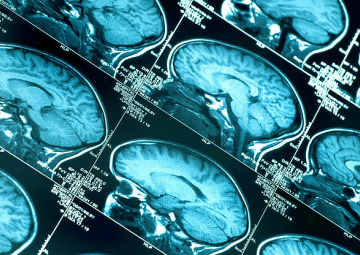About the Study
The purpose of the Social Cognition Ageing Study (SocCog) is to learn more about social cognitive function at different stages of the adult lifespan. Social cognition refers broadly to how we interpret and make sense of social situations in our environment, and is therefore critical for successful communication, and in turn, good social functioning and wellbeing. We hope that the findings of this research will assist in the development of programs and interventions aimed at enhancing social function and wellbeing in vulnerable groups.
This research is being organized by Professor Julie Henry at the University of Queensland, as well as Professor Perminder Sachdev and Dr Karen Mather at UNSW Sydney. The project has been funded by a grant from the Australian Research Council and has been reviewed by the Human Research Ethics Committee of the University of Queensland.
Participate in the Social Cognition Ageing Study
Rhiagh Cleary, SocCog Research Assistant, outlines the focus of this study and why social interaction is important.
Russell Chander, SocCog PhD Candidate at CHeBA, describes the significance of social cognition and its role in the future of dementia.
Who Can Participate?
Participation in this research is entirely voluntary. We are looking for people who want to take part in this research and who:
- Are over 60 years and speak English
- Do not have a history or current diagnosis of major psychiatric illness or neurological disease
- Are willing to give some of their time towards this important research project
- Are able to come to Randwick for face-to-face study visits.
What Does Participation Involve?
If you decide to take part in the research, we would invite you to do the following:
- Participate in two sessions (arranged at your convenience) at the UNSW Sydney approximately two years apart. During these sessions, we would ask you to complete tests of social cognitive function (such as your ability to identify emotions and detect social cues from others), as well as a range of background measures broadly focused on more general cognitive function (for instance language and memory), we all as measures of quality of life and wellbeing.
- Donate a sample of blood for hormonal and genetic testing.
For further information, see Frequently Asked Questions.
Contact
For more information or if you have any questions, please contact:
Russell Chander
PhD Candidate
T +61 (2) 9385 7338 or +61 (4) 13 974 908
E r.chander@unsw.edu.au
Professor Perminder Sachdev
Chief Investigator
T +61 (2) 9385 7357 (Angie Russell, Executive Assistant)
Frequently Asked Questions
- How long will the testing sessions take?
Each testing sessions will take 3-4 hours. The sessions will include breaks where needed.
- Where will the testing sessions be held?
The interview will be held at the following address:
Neuroscience research Australia (NeuRA)
Margarete Ainsworth Building
Barker Street
Randwick NSW 2031
Australia
The blood test will be done at the New South Wales Health Pathology Clinic (NSWHP) at the Prince of Wales Hospital (PoWH), located next to NeuRA. - Is there parking available on-site?
Yes, limited parking is available on-site at NeuRA.
- Can I participate even if I do not want to donate blood?
Even if you wish to participate in only the first part (i.e. you don’t wish to donate blood), we would still welcome your contribution.
- Will I be compensated for participating in the study?
Participants who undertake the whole 3-4 hour assessment will receive $50 voucher for grocery shopping and $10 voucher for the volunteers café to get coffee after the blood donation. We also offer free parking to those who are driving.




